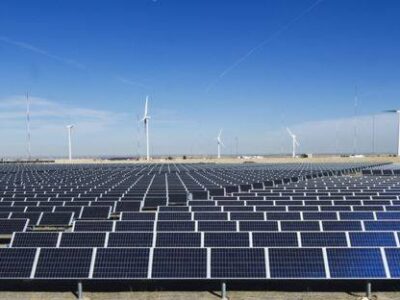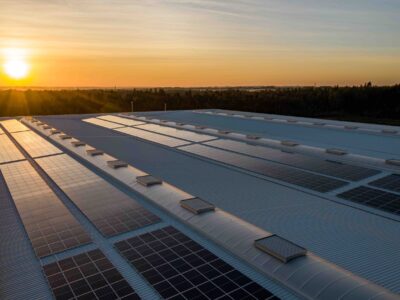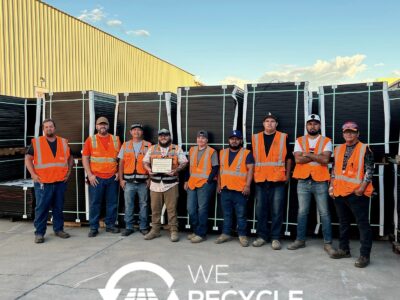Methane emissions from cattle have been a historically challenging problem to grapple with in the battle against climate change. The agricultural industry is one of the leading producers of the harmful gas, but more solutions are being developed to tackle the issue. Recently, a California dairy found a possible answer: use the methane from cattle manure as a renewable energy source.
The Bar 20 Dairy, owned and operated by the Shehadey family since 1957 outside of Fresno, CA, installed technology that captures cow manure and uses its methane gas as a power source. More than 7,000 cows’ droppings have been added to a climate digester, and the resulting electricity generated goes toward powering an electric vehicle (EV) charging grid run by BMW North America. It’s an ingenious way to reduce methane emissions and sustainably power America’s EV infrastructure. Up to 17,000 EVs can be powered thanks to these devices.
Bar 20 has been researching and developing strategies to reduce its methane footprint and applications for the dairy industry as a whole. In 2019, the California Department of Food and Agriculture gave the company a Digester’s Grant for installing and maintaining climate digesters for methane capture. The machinery was up and running by December 2021.
The farm’s methane reduction equals more than 25,000 tons of carbon dioxide annually, and the electricity generated is also used to replace dirty fuels like diesel in other farm equipment.
It also can create fertilizer and animal bedding with the manure. Alongside companies like Bloom Energy, the provider of the digester’s fuel cells, 600,000 EVs could be powered by biogas-generated electricity.
“Fuel cells are playing a pivotal role in addressing climate change, and the fuel flexibility of the Bloom Energy Server enables operations of all sizes to make smart decisions about how they get their power — and in the case of biogas, we enable the ability of a closed loop, clean energy system,” said Chuck Moesta, VP gas management at Bloom Energy.
Bar 20’s work has not gone unnoticed. This summer, the Innovation Center for U.S. Dairy announced its 2022 sustainability awards, recognizing farmers contributing to eco-friendly dairy production and conservation.
Bar 20 won for its digester and sustainable practices. The organization noted the solar arrays used to power the farm’s facilities and how the electricity from the system reduced smog-forming emissions.
Not only is methane being reduced drastically, but so is carbon dioxide as more power is being made available for EVs.
“We’ve lived in California our whole life. We’ve lived in this Valley. We care about this Valley, and we give back to our community,” said Steve Shehadey. “That’s why we want to be sustainable when we look toward the future and try to make this place an even better place to be.”
This project could not have been possible without the assistance of several climate research groups and private investment. Funding came from the Dairy Digester Research and Development Program, administered by the California Department of Food and Agriculture. Money also rolled in from the Self Generation Incentive Program, administered by the California Public Utilities Commission.
More farms may be persuaded to take up these kinds of renewable energy infrastructure projects due to incentives programs offered by California. This push could lead to more digesters and solar-power fields soon. With an innovative way to use cow manure for methane and the large-scale dairy industry, more EV charging grids run entirely on biogas may also be on the horizon.





